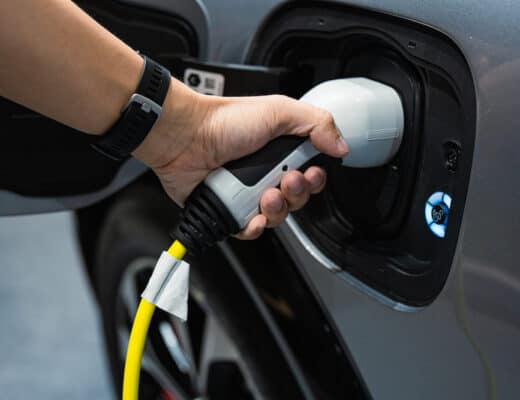Electric vehicles (EVs) have gained in popularity as a more environmentally friendly and cost-effective alternative to traditional gasoline-powered vehicles. However, not all EVs are created equal.

The three main types of electric vehicles are battery electric, hybrid, and plug-in hybrid. Each type has its own unique advantages and disadvantages, and it’s important to understand the differences before making a decision on which type of EV to purchase.
Battery Electric Vehicles (BEVs)
BEVs, also known as all-electric vehicles, are powered solely by electricity stored in a battery. They have no internal combustion engine and produce zero emissions while driving. Examples of BEVs include the Tesla Model 3, Nissan Leaf, Chevrolet Bolt and Toyota bZ4X.
Advantages of BEVs include:
- Zero emissions while driving
- Lower operating costs compared to gasoline-powered vehicles
- Quiet and smooth driving experience
- Eligibility for government incentives and tax credits
Disadvantages of BEVs include:
- Limited driving range before needing to be recharged
- Longer charging time compared to filling up with gasoline
- Limited charging infrastructure in some areas
- Higher upfront cost compared to traditional gasoline-powered vehicles
Hybrid Electric Vehicles (HEVs)
HEVs, also known as hybrid cars, combine a gasoline engine with an electric motor. They can run on either electricity or gasoline, depending on the driving conditions and the state of charge of the battery. Examples of HEVs include the Toyota Prius, Hyundai Santa Fe, Ford Escape, and Toyota Tundra.
Advantages of HEVs include:
- Improved fuel efficiency compared to traditional gasoline-powered vehicles
- No need to plug in to charge the battery, as it is charged through regenerative braking and the gasoline engine
- Eligibility for government incentives and tax credits
Disadvantages of HEVs include:
- Limited all-electric driving range
- Higher upfront cost compared to traditional gasoline-powered vehicles
- Limited availability of models compared to traditional gasoline-powered vehicles
Plug-in Hybrid Electric Vehicles (PHEVs)
PHEVs, also known as plug-in hybrids, are similar to HEVs in that they combine a gasoline engine with an electric motor. However, PHEVs have a larger battery that can be charged by plugging into an electrical outlet or fast home charger. Examples of PHEVs include the Subaru Crosstrek Hybrid, Toyota RAV4 Prime, Kia Niro and Jeep Wrangler 4XE.
Advantages of PHEVs include:
- Improved fuel efficiency compared to traditional gasoline-powered vehicles
- All-electric driving range, with the ability to switch to gasoline power when the battery is depleted
- Eligibility for government incentives and tax credits
Disadvantages of PHEVs include:
- Limited all-electric driving range compared to BEVs
- Higher upfront cost compared to traditional gasoline-powered vehicles
- Limited availability of models compared to traditional gasoline-powered vehicles
In summary, electric vehicles offer a more environmentally friendly and cost-effective alternative to traditional gasoline-powered vehicles. However, each type of electric vehicle has its own unique advantages and disadvantages. It’s important to consider your specific needs and preferences when deciding which type of EV is right for you. With a variety of automotive brands and models to choose from, you’re sure to find an EV that meets your needs.



